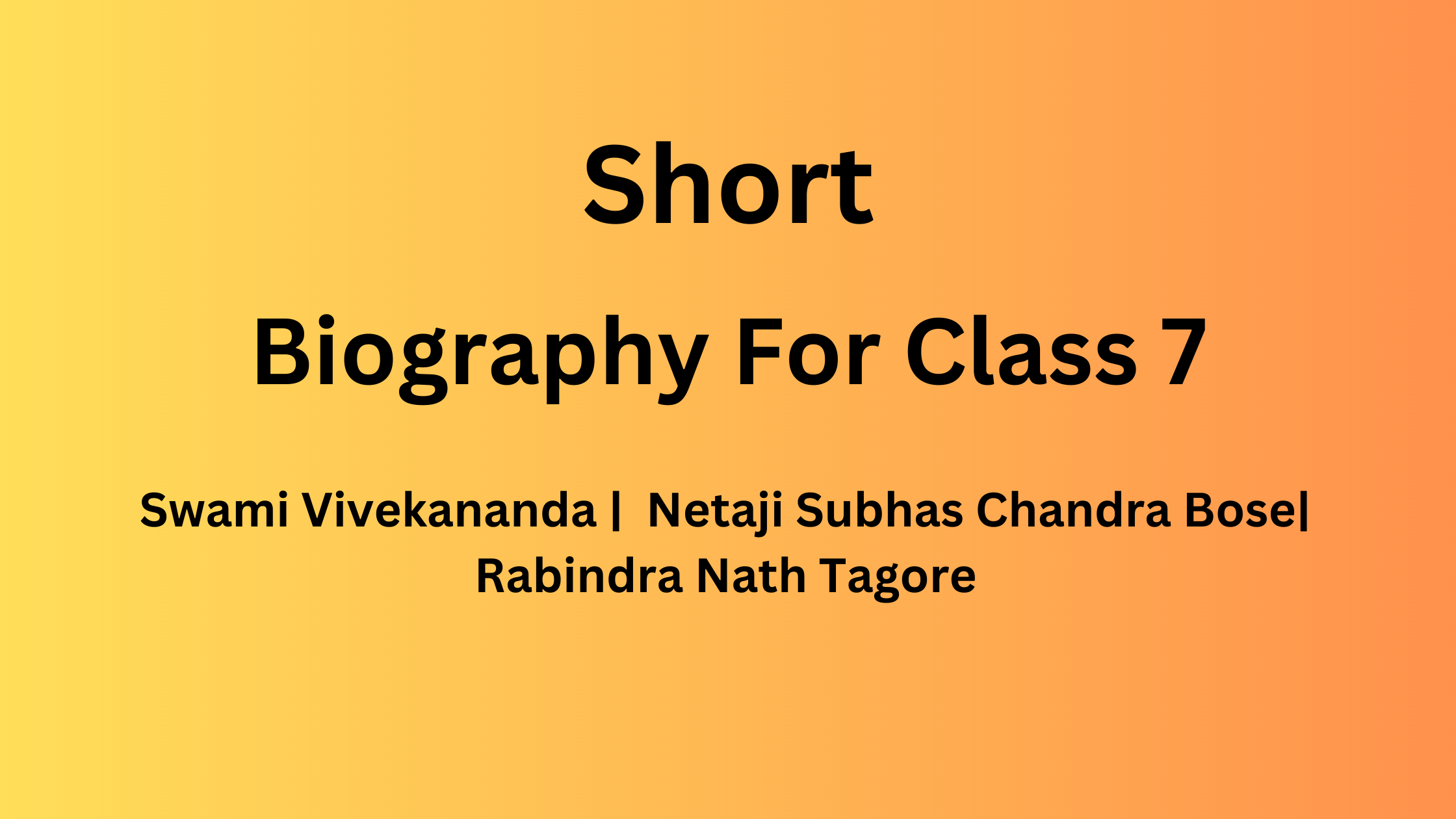
Here are some Biography writing for classes – 7 and 8
1) Swami Vivekananda
Twelfth January 1863 saw the birth of a new star in the religious horizon of India, nay of the world. Swami Vivekananda or Narendranath Dutta is regarded as one of the greatest religious thinkers and social reformers of India. On this day pious Biswanath Dutta, an Attorney of the Kolkata High Court, and Bhubaneswari Devi were blessed with a son whom they called Bile.
His real name was Narendranath. Bile war a naughty and restless child. He began his early education at home and had his schooling in Metropolitan School.
He passed the Matriculation examination in 1879. He completed his college education from Presidency College and General Assembly Institution. After his Graduation in 1884, Narendranath met Sri Ramkrishna in 1882 and the meeting initiated a turning point in his life. Later he became the disciple of the prophet and came to be known as Swami Vivekananda.
The world Parliament of Religion started on September 1, 1893, in Chicago and Swamiji participated in the World Religious Conference and came back winning laurel for India. Through his historic speech, the Hindu monk conveyed the eternal messages of ‘ Help and not fight’, ‘Assimilation and not Destruction’, and ‘Harmony and Peace and not Dissension’.
He founded the Ramakrishna Mission in May 1987 and the Belur Math in December 1898. Swamiji left his mortal frame on 4th July 1902 at the age of 39 but his eternal messages will serve as a beacon for generations to come.
2) Netaji Subhas Chandra Bose
Netaji Subhas Chandra Bose was born at Cuttack in Orissa to Janakinath Bose, a government pleader and Prabhavati Devi, a noble lady on 23 January 1897. Netaji had a bright academic career. After graduation from Scottish Church College, he went to England to complete for the I.C. S. Examination and stood fourth in order of merit.
But on his return to India, Netaji joined the Indian Freedom Movement in 1921. The British imprisoned him several times. During the Second World War, Netaji left India in disguise. He formed the Azad Hind Fauj in Japan and fought against the British rulers and reached Imphal in Manipur. But he had a retreat by the irony of fate.
His death is a plane crash still remains a mystery. However, Netaji has reminded us immortal as a symbol of burning patriotism in our hearts forever.
3) Rabindra Nath Tagore
Rabindra Nath Tagore was born at Jorasanko in Kolkata on May 7, 1861. He received no regular school education. Under the personal care of his father Debendranath Tagore and the guidance of some efficient tutors, he gained a profound knowledge of Bengali, Sanskrit, and English.
He was a poet, a dramatist, a composer of songs, a writer of short stories, a novelist, a critic, an essayist, and a painter. Some of his best poems are found in the Gitanjali, Sonar Tari, Kheya, Kalpana, Balaka etc. For his English version of Gitanjali, he was awarded the Nobel Prize in Literature in 1913.
He was a great educationist and established a school at Shantiniketan. Afterward, he founded the Visva-Bharati University to actualize his own idea of education. I admire this genius for his contribution to our literature and culture.